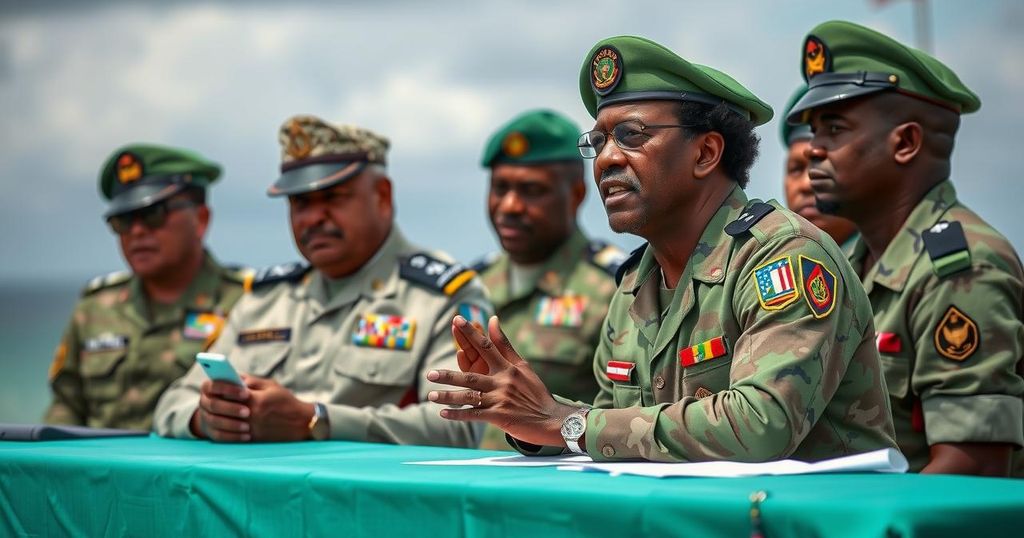Foreign ministers from Caribbean nations and Benin are discussing sending troops to Haiti to enhance stability, which they view as symbolically significant for black communities globally. The meeting also aims to strengthen trade relations and promote memorial tourism related to the trans-Atlantic slave trade, targeting increased cooperation and investment in various sectors.
On January 8, 2025, in Cotonou, Benin, foreign ministers from Caribbean nations, alongside their counterparts from Benin, convened to deliberate the potential deployment of troops to Haiti. The ministers expressed that stabilizing Haiti is not just crucial for the nation itself but carries symbolic weight for the global black community, with Haiti being recognized as the first black republic worldwide. Benin’s Foreign Minister, Olushegun Bakari, emphasized, “For all black people in the world, Haiti is symbolic, it is the first black republic in the world, and so if Haiti falls, all we black people fall”. The discussions aimed to reinforce security and cooperation, particularly in light of Haiti’s ongoing gang violence and political turmoil.
Furthermore, the nations aspire to enhance trade between Africa and the Caribbean, targeting an increase to $1.8 billion by 2028, which includes significant investments in diverse sectors such as agriculture and tourism. The meeting also sought to promote memorial tourism, facilitating Caribbean nationals in exploring historical sites in Benin associated with the trans-Atlantic slave trade, as outlined in the official statements following the conference.
The discussions surrounding troop deployment to Haiti stem from the country’s prolonged struggles with gang violence and instability, which have had devastating effects on its society and economy. The involvement of Caribbean nations and Benin aims to provide not only military support but also to foster a deeper cooperation between Africa and the Caribbean, signaling mutual interests in cultural and historical unity. Recognizing Haiti’s historical significance, the ministers underscored the broader implications of its stability for black communities worldwide and pursued initiatives that promote economic collaboration and heritage tourism.
In summary, the meeting of Caribbean foreign ministers and their Beninese counterparts highlighted urgent concerns over Haiti’s unstable conditions, acknowledging its emblematic status for black nations globally. The proposed military assistance aims to bolster security and showcase solidarity, while broader economic goals reveal an ambition to enhance trade ties and cultural understanding between the African and Caribbean regions.
Original Source: www.jamaicaobserver.com






